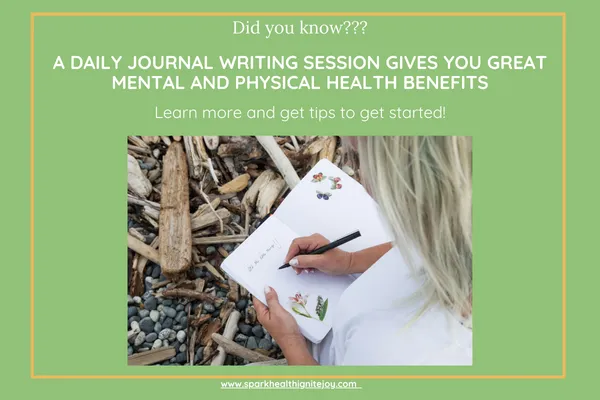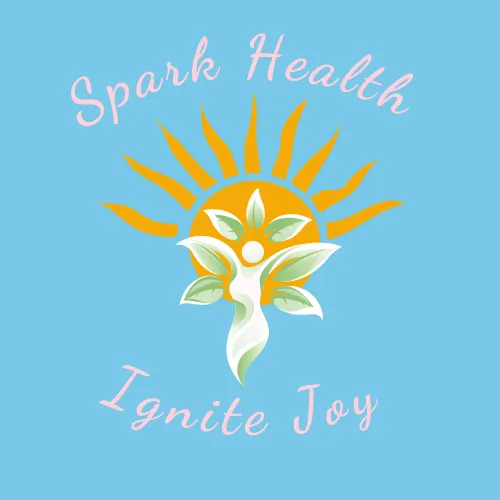Welcome to my Blog!

About the Blogger
Hi, I'm Wendy!
I'm an EXPERT in fun, joy and living life with a "you gotta put in the hard work for what you want (but still have fun doing it!) and the rewards are SO worth it" mantra for success and getting the most out of life!
I'm a CERTIFIED EXPERT in fitness, nutrition, weight loss and coaching from a habits-based, whole foods plant-based perspective that is all about GOOD HEALTH for life.
My passion is helping people truly find and live their optimal lives through making the connections between optimal health and a joyful, fulfilled life.
Through online courses and meal plan coaching, I teach strategies for good habits, good health, making things easier for yourself, and being good to yourself and others.

Journal Writing-the powerful mental and physical health benefits of a daily writing habit
When you think of journal writing does it bring thoughts of being something we left behind after we were teenagers, writing down our thoughts about high school dramas and friendships and crushes?
If so, you might be surprised about the powerful health benefits of developing a regular journaling practice. It also is a great way to help focus you if you are working on improving your life, changing your life, or trying to reach new life goals.
To journal in the most beneficial way you want to start a practice, just like any other practice you do (like exercise, meditation, healthy morning/bedtime routines etc.) It can also help especially when first starting - or getting back into the practice - to have some helpful guidelines.
There are different ways you can use journaling. You can use one or all of these things and mix them up. Journaling can be a flexible thing depending on your needs. You can use it to just write out your thoughts with no particular focus to let it all out. You can ask questions and write things out so you find some answers. Journaling can help you tell your story and have it forever written down. It can help you identify and focus on your deepest goals. It can help set you up for powerful daily routines where you focus on your goals and the actions you need to take to reach them. It can be a way to inspire yourself and your life. And it can be a way to emphasize all the things you have in your life to show gratitude for.
Let’s start with some of the health and life-enhancing benefits of a regular journal practice:
>> It helps you clarify your your goals and your vision for your life. By getting clear on these and repeating the writing of them daily, it has been shown to set you up by success because as the saying goes…..where your focus goes, energy flows. To set your goals and write them down daily, you will also be able to take the daily actions and develop healthy habits to actually reach your goals. It’s easy to get off track but journaling around your goals keeps your focus strong and helps you make choices through your day that are in alignment with your goals and where you want to be in your life.
>> It helps you learn and reflect on your life by keeping a record of the lessons and ideas you have discovered and helps you remember them more effectively as you write them down and reflect on them through writing about it. This helps you to stay positive about things you may have thought of as “mistakes” or “failures” because you are focusing on the lessons you learned through these things and how you can put them to use going forward.
>> Regular journaling helps your creativity in a way that just writing ideas down once in a while doesn’t do. Journaling lets you record ideas as they come to you and it keeps a record of them.
>> Journaling gives you a written record of your experiences, which can be beneficial as you live your life and look for growth opportunities. And of course it can be an incredible looking back in a way nothing else can - years later in your life!
>> Writing about any stressful experiences and periods you are having in your life helps you manage and process them in a healthy way that can help lead you to growth and positivity from these situations. It can also help you confront and deal with some of your fears and help you manage difficult times and come out of them with growth and positive personal change and ways of coping with the inevitable challenges life gives us all.
>> Writing in your journal regularly can help you see things in your life that you might not be noticing otherwise. It can help you to see patterns in how you are living, thinking, experiencing things, consequences that might be happening from your daily actions and habits, and things that might be influencing your thoughts, feeling and behaviors. Journaling can increase your confidence and sense of your identity.
>> Journaling is a great tool and habit for managing stress and lifting your mood. It is time spent that can calm you, focus you when things are seeming a little crazy, and it lets you release tension and stress as you release your emotions out on paper. It can increase your sense of well-being and feelings of positivity and some control over your life. It has been shown to regulate how your brain regulate emotions.
>> Studies have been done that show that the process of regular journaling can actually lead to improved health indicators. Regular journal writing has been shown to strengthen your immunity and thereby reduce risk of illness. It has been show to reduce symptoms of asthma and rheumatoid arthritis, improve liver and lung function and lower high blood pressure caused by chronic stress. In part this is achieved by the way journaling helps you reduce stress, in many ways very similar to the much-researched habit of meditation.
>> Neuroscientists have done research on the brain on the writing process and have also shown that regular journaling has benefits for your brain and can be helpful for seniors to keep their brains in good shape too. For everyone, but especially as you get older, the process of writing can be beneficial for your brain as you have to focus on a task without distraction, get creative in finding words to describe things and thoughts, connecting the past, present and future in your writing and more. The process of writing uses our right-brain creativity centers and over time will increase the use of this “brain power” and help maintain it longer.
>> Studies have show that chronic anxiety and depression can lead to cognitive decline whether you are a senior or not. Journaling is a tool that can help your brain function, improve your mental health and reduce cognitive decline as you get older because it is a tool that can be used to express your emotions and process your problems in a way that helps to reduce their negative power over you while often helping you to form solutions or at least gain control over your emotions and mental well being.
>> One wonderful way to use journaling is to up your level of gratitude - to identify, focus on and appreciate all the little and big things you have to be grateful for. Writing this out helps you see all the things to feel gratitude for. More and more research is showing the power of gratitude and how you can use it in your daily life. When you focus on a repeated daily gratitude practice - and journaling/writing it down is a great way to do this - it helps lower rates of depression, stress and anxiety. A gratitude practice that involves journaling is a great way to help you focus on your goals and get results in your life too because it helps keep you positive, focused and open to the things you want to achieve or have in your life rather than becoming overwhelmed by other things that bring you down and which don’t reflect your whole life.
TIPS FOR GETTING THE MOST OUT OF A JOURNALING PRACTICE:
>> You get the most benefits from doing it regularly. So to develop it as a habit, don’t have massive expectations for it or it may stop you from even starting or you’ll overwhelm yourself and stop. Try setting aside 10-15 minutes a day (first thing in the morning before your day takes over is a great time even if it means waking up a bit earlier) and write in a quiet space away from everyone and distractions.
>> To develop the habit, try to do journaling 4-5 times a week at least, consistently. Daily practice, done consistently over time, is the way habits are built. It’s better to journal for a short time period but do it daily than expect to do a long session that you can’t actually manage to do and stick with every day or a few days a week.
>> You can write about specific things like your goals and gratitude to get you started, and even repeat these daily. Once you get in the rhythm of writing you can then expand if you want to, to reflect on other things that come to you.
>> Take a few minutes to reflect on what you’ve written after your session.
>> With journaling you don’t have to feel like you have to write about any topic in your life. There are some things that you may really just feel like writing about to help you process stuff, or find some answers though writing to things you have questions about. But there are some topics that you might just not feel like writing about yet, or ever. There is no pressure just what is right for you in the moment. The more you practice journaling, the more you will likely find you are drawn to write about certain things in your life that come to you or that you need help, answers from within, clarification when your thoughts may be otherwise a bit scattered about some things, or you’ll find inspiration you can get just from writing in the moment.
>> Keep your journal private. It’s for you and you only. Unless you feel like you want to share parts of it with someone at some point. But knowing it’s private will help you get more out of it yourself.
>> Write first thing in the morning as part of your early morning routine before other obligations take over. Get up a bit earlier to do this if you need to (it’s worth it!).
>> Don’t just write when you’re feeling your best and things are going well. Even though it might be hard at times, it’s helpful to do journaling in tougher times or when your routine is out of whack. It will help ground you, calm you, and give you great insight.
>> Learn to “let go” and be really honest and true to yourself in your writing. One of the biggest things is to NOT judge your writing or yourself while journaling. Get comfortable with letting go in this type of writing and not judging it, trying to edit it, trying to make it “perfect” or even have any kind of form at all. One good technique is to write quickly, without censoring or organizing your writing and thoughts. Over time, you’ll get comfortable with it being a different, looser and more free kind of writing than other things you might write. With journaling, you need to forget everything you learned in school about good writing and proper structure! Your journal is a place to be really honest while not judging yourself. Yes, you can learn from it, but don’t let that stifle your writing while you’re doing it. Remember: it’s private, it’s yours, and there’s no one you have to impress with it.
>> There’s different things you can journal about and it likely will change for you depending on what’s going on in your life and how you’re feeling. But one thing that can be consistent and that will really benefit your life in big ways, is to write down your goals daily. You might be surprised at how effective that is for keeping you focused on what is really most important to you. The act of writing down goals daily has been shown to increase the likelihood of us reaching them, because it helps us take the consistent actions we need to do that are in alignment with our goals.
>> Don’t let your journaling be mostly about negative things or things that will keep you wallowing in a place where you’re blaming yourself or not lifting yourself up. When you do write about some of the negative things or things that are bothering you, use the time to also write down solutions and find your way out of that headspace. Letting go and talking about some of the frustrations or negative experiences you may have is fine but becomes less useful when you don’t also reflect on how you, yourself, can move forward and get yourself out or away from those things. That’s where journaling can be really empowering for you.
TIPS AND PROMPTS FOR WHERE TO START:
If you need some prompts or ideas on where to start with your journaling practice, try some of these ideas!
>> Write down things you are grateful for in your life. Thinking about those things can prompt you to write more and see more about your life. And you will finish feeling positive and strong.
>> You can start by just writing down some of the things you experienced, heard about, learned about, saw or did today (or the day before) and then add your thoughts and reflections on them. This can start you to flow in your writing more than you might think!
>> If you are spending a lot of time in your own head, maybe even going round in circles on an issue/question/idea/uncertainty you have in your own life, you can start to write about that and “talk”/write your way through it so you actually get some answers on paper so you’ll be able to “let it go” from circling around your head. Often writing things out, whether it’s the pros and cons of a thing or just free-writing, can help you sort something out. And most often it turns out to be solvable, and something that actually isn’t that complicated when it’s down on paper as opposed to rolling around in your thoughts and emotions about it.
>> If you have any fears or anxieties about things, you can write about them and try to get at the real behind the scenes/underneath it all reasons you actually have those anxieties. Try to ask yourself “why” and get to the underlying truth. This can work especially well if you are feeling those things as you sit down to write and you can ask yourself “what am I really feeling right now? How would I describe it? Why am I feeling this way?” It usually results in finding ways to overcome those feelings.
>> You can write about where you’re at in a number of different areas of your life - family, friends, work, personal goals, dreams, things you want to do - and where you’d LIKE to be.
>> When you’re REALLY stuck for what to write about, sometimes it’s fun to just start writing gibberish! Just put words down on paper. Look out the window or around the room you’re in and just start writing about it. When you’re not judging your own writing (which you should’t be in your journal) you can just let the words fly because it doesn’t matter if they mean or say anything. Sometimes this can be fun and often it will lead you to narrow down and write about something more focused or it can actually be just as fun to just let yourself go and really ramble on!
>> Start with writing down an inspiring quote that you’ve found somewhere else and then start writing about your reflections on it, what it means to you, why you like it, why it inspires you, etc.
>> Think about your younger self and write about how your life so far has been what you envisioned back then, or ways in which it’s been different. Write about some of the things you’ve learned and experienced in your life so far. You can also try writing a sort of letter to your future self from your perspective right now.
>> Write about some of the best advice you’ve ever received or about role models you’ve had and what you learned from that.
>> You can write out simple things like lists of your favorite things, places, activities, people and expand on why you enjoy these things. Don’t underestimate things like this as a prompt for writing in your journal. Once you get going, you can see how the ideas expand and in exploring those things it can lead you to discovering what you want more of in your life.
>> Write about your ideal life and your ideal version of yourself. Where would you be? With whom? What will you be doing? Take time to really be detailed about all this and see where it leads you.
>> Write about some areas of your life that you want to make personal change in. Explore the WHY underneath as that can give you the incentive to make those changes. Are there habits you want to change or develop?
>> What are the things you’d love to learn about, if you had time and opportunity? What is it about those things that interest you?
>> What are the things you like best about the people in your life? Family, friends, co-workers, neighbors, etc.
>> If you had all the free time in the world and enough money to live comfortably, what is it that you’d be doing with your time? Why?
>> Turn inwards and write about how you’re feeling. What has bothered you in the past few days? What has made you happy?
These are just a few journaling prompts and ideas to get you started!
Habits Spark!: Neuroscientists have shown through research that writing in a journal consistently has numerous physical and mental health benefits. Try a short, daily, private-time journaling practice and see for yourself how it helps with feeling better and reaching some of your goals!

Sign up for my newsletter here!



Facebook
Instagram
X
LinkedIn
Pinterest